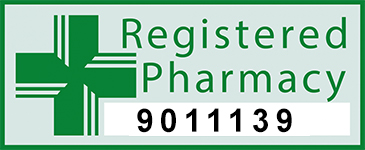Brexit: One Stop Pharmacy plans for end of the Transition Period
Written by Gavin Cheema, Head of Clinical Services and Service Development
With the end of the transition period fast approaching and the UK poised to leave the EU Single Market and Customs Union at 11pm on the 31st December 2020, we want to provide reassurance for our clients in the event of a possible worst-case scenario.
One Stop Pharmacy has developed a robust contingency plan which mirrors key and significant aspects of the Department of Health and Social Care (DHSC) multi-layered approach for protecting the supply of medicines and medical goods. We continue to monitor and follow guidance provided by the DHSC and will endeavor to provide updates to our clients as and when published.
Stockholding
The DHSC advice is that contractors should not stockpile additional medicines and medical devices beyond the usual business stock holdings.
One Stop Pharmacy is adhering to this guidance, and we would like to reassure our clients that we hold at least six weeks’ worth of medication of our top 350 lines at any given time. We will not be looking to increase our stock holding to greater than six weeks unless new guidance from the DHSC is published closer to the end of the transition period.
We strongly encourage our clients not to over order or stockpile medicines within their organisation and to continue monitoring and managing the stock levels according to your organisation’s demands.
It is important to note that the DHSC, working closely with the NHS Supply Chain, has built up a centralised stock build (CSB) of fast-moving medical devices and clinical consumables and has been working closely with companies within the pharmaceutical industry, where possible, to stockpile a target level of 6 weeks’ total stock within dedicated UK warehouses.
Medicines Shortages
Our head of buying, and the rest of our team, monitor medicine supply disruptions and/or manufacturing issues on a daily basis and have an open line of communication directly with our main suppliers and/or manufacturers to try and anticipate medicines shortages.
All medicines will be delivered as normal and we anticipate no disruptions to your usual delivery schedules, but it would be wise to anticipate potential delays in receiving some medicines where supply disruptions have occurred.
We will communicate all or any anticipated procurement issues at the earliest opportunity and our pharmacist’s will suggest suitable alternatives to ensure continuity of care for your service users.
Diversifying Procurement of Medicines
Although we use an array of suppliers and procure directly from manufactures where necessary, we are exploring the option to expand the number of suppliers we obtain medicines from as part of our contingency plan. This will help mitigate the risk of medicines shortages through the procurement from an increased number of multiple sources to ensure a consistent continuity of supply.



